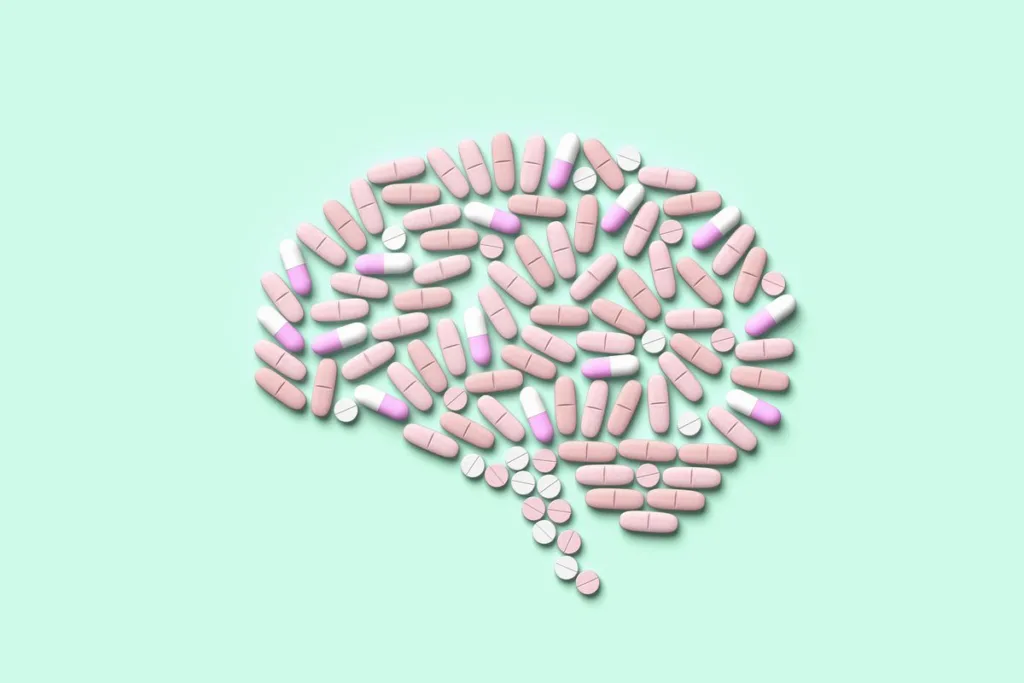Introduction
The weight loss industry is booming, with consumers spending billions each year on products and programs to help them shed excess pounds. A large segment of this market consists of over-the-counter (OTC) weight loss supplements, including pills containing ingredients like caffeine, green tea extract, conjugated linoleic acid (CLA), and more. These OTC weight loss pills promise impressive results, from rapid fat burning to appetite suppression. However, many fail to deliver on their lofty claims.
In this comprehensive blog post, we will uncover the real pros and cons of OTC weight loss pills. Analyzing scientific research, online consumer reviews, product labels, and potential health implications, we reveal the truth about the efficacy and safety of these accessible weight loss aids. Read on to empower yourself with knowledge before purchasing another bottle of diet pills!

Understanding Over-the-Counter Weight Loss Pills
Over-the-counter weight loss pills refer to any supplement containing ingredients that aid in weight loss which can be purchased without a prescription. As they do not contain any controlled substances, OTC diet pills are easily accessible online or at pharmacies and superstores.
There is an enormous range of OTC weight loss pills available, containing diverse formulations and relying on different mechanisms. Some claim to boost metabolism, allowing your body to burn more calories at rest. Others suggest they can suppress appetite, reducing overall food intake. Select products contain diuretics to reduce water weight. There are also carb or fat blockers. With flashy marketing and compelling before-and-after imagery, OTC diet pills have become immensely popular among consumers looking to lose weight quickly.
The Promised Benefits
According to product labels and advertisements, OTC weight loss pills offer several science-backed benefits. Most notably, many promise rapid and even extreme fat and weight loss, advertising incredible monthly shedding totals if used properly. The numbers seem unbelievable, claiming shed rates of up to 50 pounds a month!
Ingredients like caffeine and green tea are added to increase thermogenesis and kick metabolism into higher gear. CLA supposedly helps break down and burn fat. By revving up metabolic rate and burning extra calories, OTC diet pills vow to create drastic caloric deficits without any additional diet or exercise changes.
Additionally, select products contain substances said to suppress appetite. Ingredients such as glucomannan and Garcinia cambogia supposedly regulate hunger hormones and reduce cravings. This powerful one-two punch of burning more calories while eating fewer calories seems like a miracle recipe for jaw-dropping transformation.

The Dark Side: Potential Drawbacks
While the promised benefits seem too good to be true, the potential dangers of OTC weight loss pills are very real. As an unregulated industry, safety standards and quality control measures for supplements are frequently low or non-existent.
Health risks range from unpleasant digestive issues like diarrhea, cramping, and laxative effects, to severe dehydration resulting from accelerated water loss. The high caffeine content also carries risks of jitteriness, headaches, sleep disruption, and even abnormal heart rhythms.
More severely, some OTC diet pills have been pulled from shelves after being linked to harmful side effects like liver damage, pulmonary hypertension, stroke, and heart attack in isolated cases. Even fat blockers can prevent the absorption of essential fatty acids and fat-soluble vitamins.
With such extreme and unrealistic claims of rapid weight loss, OTC diet pills frequently rely more on the placebo effect than proven physiological action. When this intended placebo effect backfires and consumers experience adverse reactions, outcomes can be dangerous. It’s critical consumers educate themselves on product contents and safety before use.
Efficacy: Scientific Evidence and Research
When evaluating and analyzing the legitimate efficacy of OTC weight loss pills, it is essential to remove ourselves from the hype and flashy advertising claims. What does impartial scientific research actually reveal about over-the-counter diet supplements? Can they deliver safe and sustainable results?
Firstly, it is clear that some OTC weight loss pills can generate modest short-term results, usually around 2-9 pounds over a 12 week period. However, a recent comprehensive analysis found that the majority of weight lost using OTC diet aids comes from water weight rather than actual body fat.
Research also indicates supplements are more effective when combined with lifestyle interventions like dietary changes and exercise regimens. In isolation, their impact is minimal at best. Scientists emphasize that the key to long-term weight management remains a consistent caloric deficit fueled by increased activity and reduced intake. Pills alone seem ineffective at generating lasting transformation.

Lifestyle Factors and Holistic Approaches
Considering the scientific consensus on supplementation, it is clear lifestyle factors and holistic weight loss approaches should form the foundation of any fat loss plan rather than OTC diet pills.
Comprehensive meta-analyses reveal increased physical activity and exercise is actually the single most influential factor in long-term weight management. Combined with balanced, lower-calorie diets focusing on nutritious whole foods, sustainable lifestyle interventions excel at inciting fat loss and keeping weight off.
Rather than wasting money on the latest heavily-marketed diet pill promising overnight results, consumers should address the root lifestyle causes of excess weight gain. Things like nutrition quality, sleep sufficiency, stress management, and daily movement patterns offer immense room for positive change. Then, OTC supplements can play a secondary supporting role if desired.
Consumer Experiences and Reviews
Beyond scientific research, it is insightful to analyze real-world consumer experiences with over-the-counter weight loss pills. Online reviews and community forums offer a wealth of user-generated data detailing personal outcomes using diet supplements.
Positively, some consumers do report noticeable fat loss and weight reduction from OTC diet pills, especially when combined with dietary adjustments. Products containing caffeine or green tea extract seem to yield more consistent results. However, nearly all positive reviews emphasize only modest weight changes even after months of diligent pill-popping.
Alternatively, scores of consumers detail disappointing or even alarming experiences using OTC diet supplements. Stomach pain, diarrhea, vomiting, headaches, jitteriness, and heart palpitations were commonly reported in negative reviews. More seriously, a few consumers described jaundice, kidney problems, and gallstones after extended use of certain pills.
Overall, consumer reviews indicate unrealistic expectations, modest efficacy at best, and potential health dangers. While OTC diet pills work well for some, outcomes are unpredictable and quality control is concerning. Readers are encouraged to share their own experiences with over-the-counter weight loss pills in the comments below!

Making Informed Decisions: Tips for Consumers
Considering the inconsistent efficacy and unpredictable side effect profile of over-the-counter weight loss pills revealed in scientific research and consumer reviews, it is essential dieters make informed decisions before purchasing. Here are some key tips:
- Carefully research products and brands, reading impartial scientific information rather than sensational advertisements.
- Analyze ingredients, drug facts, and warning labels before purchase. Avoid products with risky or untested substances.
- Consult a doctor, pharmacist, or registered dietitian to discuss your weight loss goals and create a safe plan integrating lifestyle changes. Do not rely solely on pills.
- Monitor energy levels, appetite, digestive function, and other markers of health when beginning a new OTC supplement regimen. Cease use if adverse reactions develop.
An educated, responsible consumer is an empowered consumer. Make science-backed decisions and select quality supplements to support sustainable lifestyle change rather than chasing hyped-up pills promising overnight success. The results will be more modest but also more meaningful.
Conclusion
In closing, analyzing extensive research and real-world data has unveiled the legitimate efficacy of over-the-counter weight loss pills. While some isolated ingredients like caffeine and green tea extract can increase thermogenesis and fat oxidation, effects are generally modest and enhanced through lifestyle interventions.
Alternatively, the promised benefits broadcasted in product advertisements remain largely unsubstantiated and unrealistic. Relying solely on OTC diet pills often leads to disappointing results and unpredictable health implications. Consumers must empower themselves through education rather than falling victim to clever marketing traps.
To safely and effectively lose excess body fat, lasting lifestyle transformations emphasizing improved nutrition, increased activity, stress relief, and better sleep should form the foundation. Then, quality OTC supplements can provide supplementary support if desired. But sustainable results require diligent self-work rather than popping the latest diet pill panacea and waiting for magic.
Join us!
We invite you to join our newsletter for more unbiased insights on supplements, fitness, nutrition, and everything related to health and wellness. Explore our website for additional informative content helping you make empowered decisions on your journey toward self-improvement. What has your experience been with over-the-counter weight loss pills and other supplements? Please share your thoughts in the comments to enlighten fellow readers. Thank you for reading!
Thank you for reading this post, don't forget to subscribe to our free newsletter
!